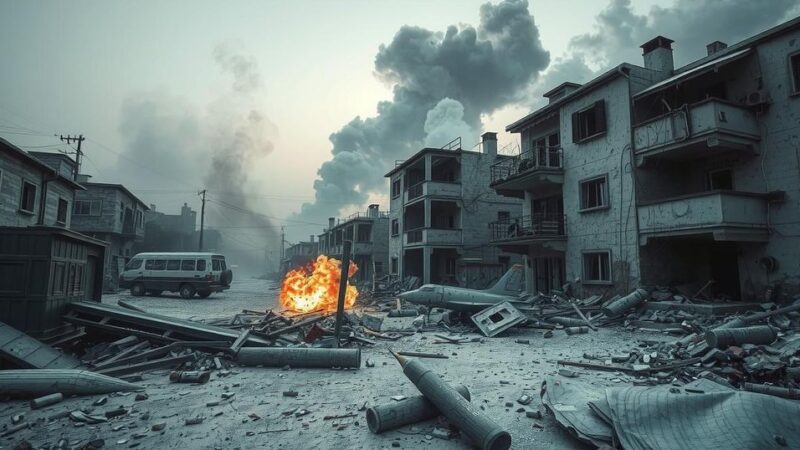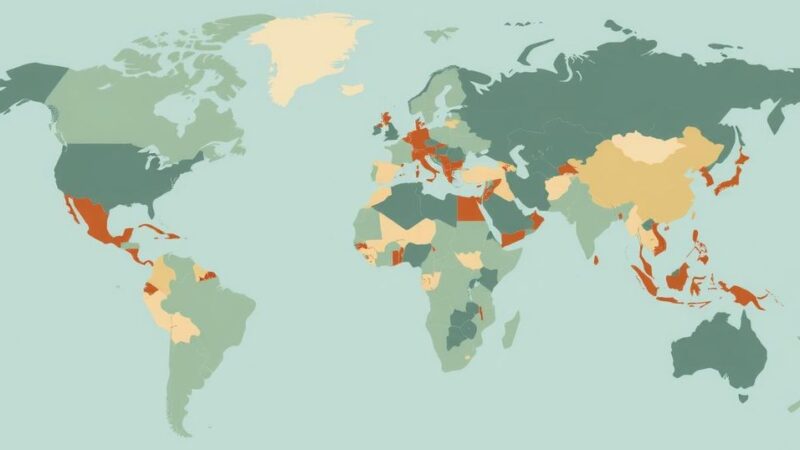Algeria and Tunisia are facing a border crisis due to irregular immigration, with Algeria’s recent restrictions escalating tensions. Despite discussions on cooperation, Tunisia accuses Algeria of neglecting its responsibilities to manage the migrant flow. Regions like Sfax have seen an increase in crime, prompting calls for military intervention, even as human rights concerns are raised. Meanwhile, Europe pressures Tunisia to prevent migration without financial assistance, highlighting the ongoing complexities of the situation.
Algeria is currently encountering significant challenges in its relationship with Tunisia due to the ongoing flow of irregular immigrants. For years, large numbers of Algerian and African migrants have crossed into Tunisia. However, recent restrictions implemented by Algeria have heightened tensions and resulted in a border crisis, prompting a need for dialogue between the two nations.
Although there has been some collaboration on migration and security matters, Tunisia has expressed concern that Algeria is not sufficiently addressing the migrant situation. This prompted Tunisian President Kais Saied to send Interior Minister Khaled Nouri to engage in discussions with his Algerian counterpart, Ibrahim Mourad. They addressed issues such as smuggling, border security, and the economic repercussions for both countries.
The meeting underscored the necessity for increased cooperation in managing irregular immigration. Nouri later met with Algerian President Abdelmadjid Tebboune to reinforce this diplomatic approach. Political analyst Nabil Rahbi emphasized the need for Algeria to take greater responsibility in preventing migrants from reaching Tunisia, expressing concerns about Algeria’s recent lack of action.
The border region of Sfax has been notably affected, particularly areas like Jebiniana and El Amra, where residents report a marked rise in crime and assaults. In response, Tunisian parliamentarians, including Tariq Al-Mahdi and Fatima Al-Mahdi, have proposed military intervention in these critical areas. However, several human rights organizations have raised objections to such measures, criticizing the government’s inadequate protections for vulnerable populations amid strict migration policies.
Al-Mahdi highlighted the presence of criminal gangs preying upon migrants, stating, “There are criminal gangs lurking in shelters that cannot be repelled or resisted.” Additionally, Europe continues to apply pressure on Tunisia to stem the tide of irregular immigration to its shores, yet without offering financial assistance, which has turned Tunisia into a primary stopping point for various migrants.
The issue of irregular migration is not new; by May 2024, the Tunisian National Guard reported that over 19,000 illegal immigrants had crossed into their territory in the first four months of the year, with more than 70% entering through Algeria. This pattern illustrates the persistent nature of the migration challenges facing both countries and the need for a collaborative response.
In summary, Algeria and Tunisia are navigating a complex border crisis fueled by irregular immigration, exacerbated by Algeria’s recent restrictions. While discussions between the two nations highlight a commitment to cooperation in managing the situation, concerns regarding security and humanitarian protection persist. The rise in crime and calls for military intervention reflect the urgency of addressing these challenges, necessitating a balanced approach that ensures safety while also respecting human rights. The ongoing support and pressure from European countries further complicate the dynamic, spotlighting the critical need for strategic collaboration going forward.
Original Source: www.atalayar.com






